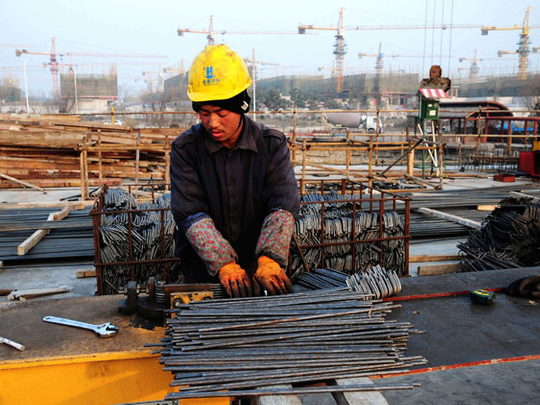
Beijing: Policy insiders are concerned that China’s ambitious reform agenda is being sidelined by a focus on stimulus to meet the government’s growth target, delaying the planned overhaul of the world’s second-largest economy.
The government unveiled plans for some of the most comprehensive reforms in nearly 30 years last November, but since then has only made incremental changes as a rapid slowdown in the economy dominated policymaking in the first half of 2014.
Sources at government think tanks involved in policy discussions said enough had been done to support growth, and now expected to see some progress on economic reforms.
“On policy, we don’t need to prescribe a strong medicine,” said Xu Hongcai, senior economist at China Centre for International Economic Exchanges, a well-connected think-tank in Beijing.
“It’s time to push reforms.” Potential measures in coming months include reforming the fiscal system to deal with massive local government debts, a long-awaited deposit insurance system to pave the way for freeing up bank deposit rates, and overhauling state giants.
“Reforms are likely to quicken in the second half,” said an influential economist at the cabinet’s think-tank, Development Research Centre.
“The possibility of rolling out reforms will be bigger as detailed plans are being finalised,” said the economist, who spoke on condition of anonymity.
President Xi Jinping is heading a leadership team that oversees drafting of detailed reform plans by different agencies, sources said.
The government usually solicits views and proposals from top think tanks before making key policy decisions.
Meeting targets
Data last week showed the world’s second-largest economy grew an annual 7.5 per cent in the second quarter, recovering from an 18-month low of 7.4 per cent in the first quarter to deliver a dividend on three months of government stimulus.
“It seems highly likely that GDP growth will pick up further. However, the concern is that, in the absence of market-determined prices and amid an overleveraged economy with weakening productivity, policy easing will again misallocate resources,” Rob Subbaraman, chief Asia economist at Nomura, said in a note.
Stimulus measures have included reducing the amount of cash some banks have to hold as reserves, quicker spending by local governments and accelerating the construction of railways and public housing.
Though officials describe such measures as fine-tuning, Beijing has steadily broadened the scope and depth of its assistance, as indicated by a surge in bank lending.
“The pace of reforms this year has been slow. We should be vigilant about the risk of reforms being delayed,” said another government economist who declined to be named.
The fallout of the 4 trillion yuan ($645 billion) stimulus during the 2008-09 global financial crisis shows the risk of putting off reform. While China got through the crisis largely unscathed, the stimulus created conditions for local governments to build massive debts and sent property prices rocketing.
More wriggle room
Premier Li Keqiang said last week that growth of slightly less than a target of 7.5 per cent would be acceptable as long it led to new jobs and higher wages, softening his tone from earlier that the rate was the minimum level.
Li’s comments signalled the government is more comfortable with the economy and intends to push reforms, analysts say.
Some government economists have suggested that Beijing could lower its growth target to around 7 per cent in 2015 to help create more room to pursue structural changes.
The piecemeal changes this year include red-tape cuts, administrative deregulation, tax and fee cuts for businesses, opening up some sheltered sectors to private firms, and a pilot financial reform scheme in Shanghai.
“The government’s stimulus policy is strong enough now, but reforms that enhance the internal impetus of the economy still lag,” said Zhang Bin, senior economist at the Chinese Academy of Social Sciences, a top government think-tank in Beijing.
Central governor Zhou Xiaochuan has pledged to free up interest rates within two years, but analysts see signs of caution given that could lead to higher borrowing costs.
The cabinet has recently approved detailed plans on fiscal reforms, which are vital for reducing the need for local governments to borrow heavily.
And China has ordered six state-owned companies to start revamping their operations as part of reforms to let private capital play a bigger role in the state sector.
“It’s unrealistic to expect big changes to take place overnight,” said a senior executive at a private electric equipment maker in the coastal province of Zhejiang, who did not want to be identified.
“After all, there are still so many problems in our economy that need to be addressed and of course it will take time.”












